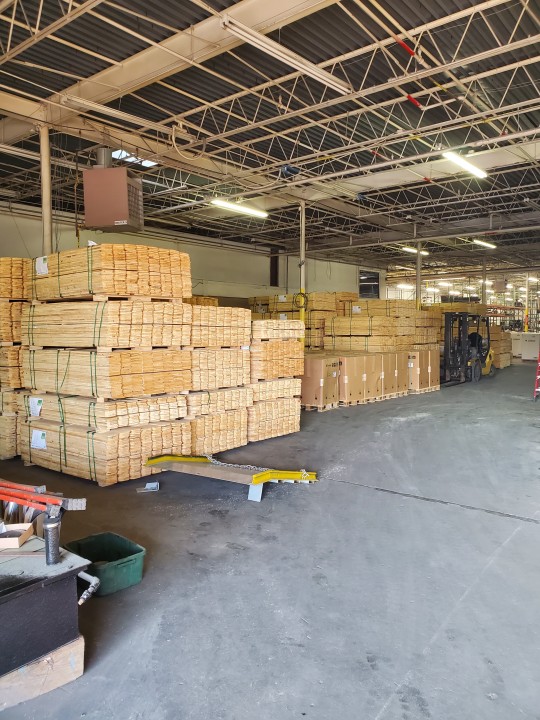
Discover How Smart Technology is Transforming Warehousing Services in India
In recent years, the rapid advancement of smart technology has revolutionized various sectors worldwide. In India, one of the most significant transformations is occurring in the warehousing sector. As a critical component of the supply chain, warehousing services are leveraging smart technology to enhance efficiency, accuracy, and overall productivity. This article explores how smart technology is reshaping warehousing services in India, highlighting the key innovations and their impact on the industry.
The Evolution of Warehousing in India
Traditionally, warehousing in India was characterized by manual processes, limited automation, and significant inefficiencies. The burgeoning e-commerce sector and increasing consumer expectations necessitated a paradigm shift in warehousing operations. Today, smart technology is at the forefront of this transformation, introducing innovative solutions to address longstanding challenges.
Key Smart Technologies Transforming Warehousing
-
Internet of Things (IoT)
IoT devices are fundamental in modernizing warehousing operations. These devices, embedded with sensors, enable real-time tracking of goods, monitoring of environmental conditions, and automation of inventory management. For instance, smart shelves equipped with weight sensors can notify warehouse management systems (WMS) when stock levels are low, ensuring timely replenishment and reducing stockouts.
-
Artificial Intelligence (AI) and Machine Learning (ML)
AI and ML are driving predictive analytics and automation in warehouses. Predictive analytics help in demand forecasting, optimizing stock levels, and reducing holding costs. AI-powered robots and autonomous vehicles streamline the picking, packing, and sorting processes, significantly reducing human error and increasing operational speed.
-
Robotics and Automation
Robotics and automation are transforming the physical aspects of warehousing. Automated guided vehicles (AGVs) and autonomous mobile robots (AMRs) navigate through warehouses, transporting goods efficiently. Robotic arms handle repetitive tasks like palletizing and depalletizing, enhancing precision and reducing labor costs.
-
Blockchain Technology
Blockchain technology ensures transparency and security in warehousing operations. It provides an immutable ledger for recording transactions, tracking the movement of goods, and verifying the authenticity of products. This is particularly beneficial in industries such as pharmaceuticals and food, where traceability is crucial.
-
Warehouse Management Systems (WMS)
Advanced WMS integrate various smart technologies to offer comprehensive solutions for managing warehouse operations. These systems provide real-time visibility into inventory levels, streamline order processing, and optimize space utilization. They also facilitate seamless communication between different stakeholders, enhancing coordination and efficiency.
-
Drones
Drones are emerging as valuable tools for inventory management and surveillance. Equipped with cameras and RFID scanners, drones can conduct quick and accurate inventory counts, reducing the time and labor involved in manual stocktaking. They also enhance security by monitoring warehouse premises.
Impact of Smart Technology on Warehousing Services
The integration of smart technology in warehousing services in India has far-reaching implications:
-
Enhanced Efficiency and Productivity
Automation and real-time data analytics significantly boost operational efficiency. Automated systems handle repetitive tasks faster and more accurately than human workers, while predictive analytics optimize inventory management, reducing overstock and stockouts.
-
Improved Accuracy
IoT sensors, AI, and robotics reduce the risk of human error in inventory management, order processing, and shipping. This leads to higher accuracy in order fulfillment, improving customer satisfaction and reducing returns.
-
Cost Reduction
While the initial investment in smart technology can be substantial, the long-term cost savings are significant. Reduced labor costs, minimized errors, and optimized inventory levels contribute to overall cost efficiency.
-
Better Decision-Making
Real-time data and predictive analytics empower warehouse managers to make informed decisions. They can anticipate demand fluctuations, manage inventory proactively, and allocate resources more effectively, leading to better strategic planning.
-
Scalability
Smart technology enables warehouses to scale operations smoothly. Automated systems can handle increased volumes without a proportional increase in labor costs, making it easier for businesses to expand their operations.
-
Enhanced Security and Traceability
Blockchain and IoT technologies enhance the security and traceability of goods. This is particularly important in sectors where product integrity and compliance are critical. Secure and transparent records help in mitigating risks related to theft, fraud, and counterfeit products.
Challenges and Future Prospects
Despite the numerous benefits, the adoption of smart technology in Indian warehousing faces certain challenges:
-
High Initial Investment
The cost of implementing advanced technologies can be prohibitive for small and medium-sized enterprises (SMEs). However, as technology becomes more affordable and accessible, it is expected that more businesses will adopt these solutions.
-
Skilled Workforce
The operation of smart warehousing systems requires a skilled workforce. Training and upskilling employees to manage and maintain these systems are essential for successful implementation.
-
Infrastructure and Connectivity
Reliable infrastructure and connectivity are crucial for the seamless operation of smart technologies. While urban areas may have the necessary infrastructure, rural and remote areas might face challenges in this regard.
Despite these challenges, the future of smart warehousing in India looks promising. As technology evolves and becomes more cost-effective, the adoption rate is expected to increase. Government initiatives supporting digitalization and infrastructure development will also play a crucial role in this transformation.
Conclusion
Smart technology is undeniably transforming warehousing services in India, bringing unprecedented efficiency, accuracy, and scalability to the sector. From IoT and AI to robotics and blockchain, these innovations are redefining the way warehouses operate. While challenges exist, the potential benefits far outweigh them, promising a future where warehousing services are more agile, cost-effective, and customer-centric. As India continues to embrace digital transformation, smart technology will be a cornerstone of the evolving warehousing landscape, driving growth and competitiveness in the global market.